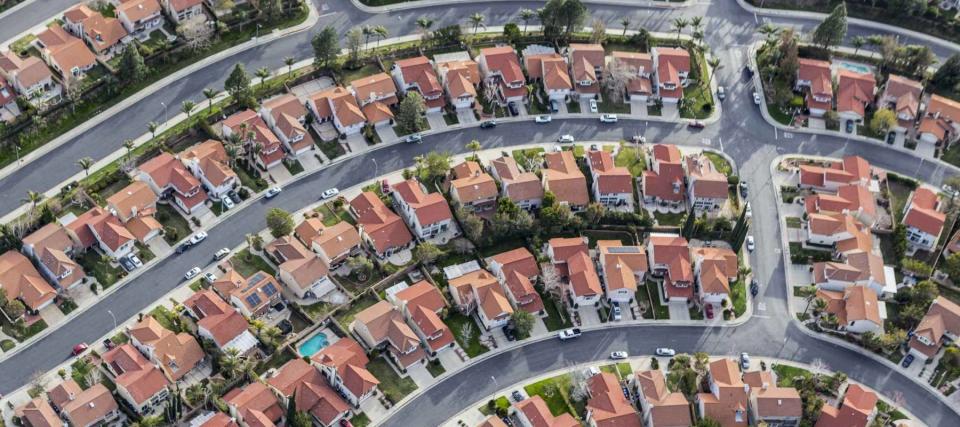Waiting for lower mortgage rates before you borrow? Bad plan, new forecasts say

A trio of new mortgage forecasts predict higher borrowing costs in the coming year — and reinforce the notion that ultra-low interest rates will soon be a thing of the past.
Americans who have refinanced their mortgages — or recently bought homes — have benefited mightily from rates that have been hovering around or below 3% for more than a year.
If you’ve already refinanced your home loan, you’ve likely been rewarded with lower monthly payments.
But if you've been putting off a refi and are hoping rates will go back down, here's the loud-and-clear takeaway from these closely watched forecasts: The longer you wait, the less you'll save.
Mortgage demand hit by rising rates

For the week ending Oct. 15, total mortgage demand — including applications to refinance and purchase homes — fell 6.3% from the previous week, the Mortgage Bankers Association (MBA) reported on Wednesday.
Requests for loans to buy homes went down 5%, while refinance applications sank 7% from the previous week and were 22% lower than the same week a year earlier.
"Refinance applications declined for the fourth week as rates increased, bringing the refinance index to its lowest level since July 2021," says Joel Kan, the MBA's vice president of forecasting.
In the mortgage bankers' weekly survey, the average rate on a 30-year fixed-rate mortgage reached 3.23% last week, the highest since April, Kan says. A competing survey from mortgage company Freddie Mac has 30-year rates averaging 3.09% this week — also a six-month high.
Even with the recent increases, mortgage rates remain historically low. But new reports indicate they'll keep rising.
Forecasts predict sizable rate increases

Mortgage giants Freddie Mac and Fannie Mae just released separate reports predicting 30-year mortgage rates will average in the mid-3% range next year.
Fannie Mae predicts rates will hit an average 3.3% in 2022, "which, though slightly higher than 2020 and 2021, by historical standards remains extremely low and supportive of mortgage demand and affordability," says Doug Duncan, chief economist.
Meanwhile, a third new forecast, from the Mortgage Bankers Association, predicts rates will shoot to an average 4% in 2022.
"Mortgage lenders and borrowers should expect rising mortgage rates over the next year, as stronger economic growth pushes Treasury yields higher," says chief economist Mike Fratantoni. Rates tend to follow the yield on the Treasury's 10-year note.
As mortgage rates rise, demand for home loans will plummet, with refinances likely to drop 62% next year, the MBA says.
How to snag a low rate will you can

Despite the predictions for higher rates, borrowing costs — today, at least — are still lower than they were before COVID-19 hit.
Whether you’re thinking about a refi or purchasing a home, getting the cheapest possible mortgage rate takes a bit of work on your part. To kick off the process, check rates from at least five lenders. Shopping around is the most reliable way to get the best rate in your area.
The lowest rates go to borrowers with the best credit scores. If you haven’t seen your score in a while, take a look — these days, you can easily check your credit score for free — to see if it needs a boost before you submit a loan application.
If you qualify for a refinance, you could potentially save hundreds of dollars a month — money that could go toward your credit card balances or paying off other, high-interest debt.
But if you’re not there yet, consider other ways to cut the cost of homeownership. When your homeowners insurance policy comes up for renewal, be sure to gather quotes from multiple insurers. You could find savings there, too.
This article provides information only and should not be construed as advice. It is provided without warranty of any kind.

 Yahoo Finance
Yahoo Finance 